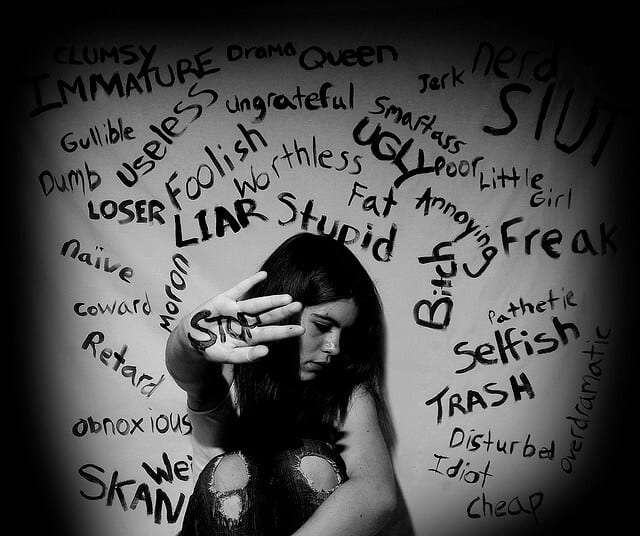
Abuse: An Umbrella Term
Merriam-Webster defines abuse as “improper use or treatment”. First thing that comes to mind when reading that definition is – treatment of what? This definition is ambiguous because it is an overarching term of varying types, each more daunting than the next. Substance abuse is excessive or improper use of drugs. Animal abuse is the infliction of suffering or harm upon animals. Elder abuse, child abuse, sexual abuse, the list goes on. One such abuse that occurs innocuously that it often goes unnoticed is emotional abuse. It is one that occurs through inconspicuous actions, but can have severe consequences over an extended period of time.
Emotional/Psychological Abuse
M T Loring defines emotional abuse as “an ongoing process in which one individual systematically diminishes and destroys the inner self of another.” Andrea Mathews describes it as a form of control, similar to physical abuse, but without the kicking, grabbing or other physical actions. Due to the dominating tendency of this abuse, it could occur in friendships, relationships as well as in the workplace. There are many signs indicative of this. Constant rejection of one’s ideas, diminishing their self-esteem. Gaslighting by manipulating the truth to make one doubt the reality. Creating a sense of fear in the relationship while isolating their relationship with friends and family. This also includes actions such as intentional sabotage, silent treatment and intimidation.
Reality vs. Delusion
It is difficult to distinguish this kind of behavior. Disagreeing on things and an occasional argument is normal. But how long till you realize that not one of your thoughts have been acknowledged? It is understandable if your spouse has had a long day at work and takes their frustration out on you. Would they still be excused if the yelling and swearing persisted for weeks or months? The key factor in this is repetitiveness. Identifying the persistence of this toxic behavior is the first step to resolution. But it does not bode well for one to live under constant repression and doubt the intention behind every action. In the long term, this could do more harm than good.
Invisible Wounds Of Abuse
Subjecting someone to this kind of abuse can result in psychological trauma. This includes mental disorders such as chronic depression, anxiety and post-traumatic stress disorder. These underlying conditions may seem invisible but can gravely impact one’s personal and professional life. In abusive relationships, emotional abuse may be accompanied with physical abuse. On occasion, psychological aggression could be a precursor. However, it is not the physical abuse that makes the relationship abusive.
A study conducted in the University of Maryland can help explain this. Christopher Murphy and Sharon Hoover investigated the impact of emotional abuse in dating relationships. They quoted, “Over 70% of battered women reported that emotional abuse had a more profound negative effect than physical abuse.” The increased frequency of emotional abuse had a more lasting impact on the victims’ mental state. Moreover, unlike a physical wound that is tended to immediately, the mental trauma often goes untreated. It is especially catastrophic for children to be exposed to this environment. Since this trauma occurs at a developmental age, it creates a high risk for mental disorders, drug abuse and suicide attempts among other issues.
Abuser Characteristics
Seldom, abusers themselves do not know the impact of their actions. It could be caused by insecurity or a need for control that is triggered by an incident. However, long-term emotional abusers have certain personality traits in common. The Dunedin Longitudinal Study discovered that certain attributes were common among abusers. This included aggression and antisocial behavior as well as narcissistic personality and multiple personality disorders. Hence, mood swings or heightened emotions can provoke microaggressions.
Resolution
Depending on the type of relationship, there are different ways to deal with emotional abuse. The most important step is to remove yourself from this toxic environment. In most relationships, setting boundaries with the abusive person is helpful. Keeping a distance from them to avoid them being able to control you. This can be beneficial in workplace relationships where you might need to be cordial with them. In extreme cases, you might need to cut ties to keep the distance. This could occur in friendships or relationships where the abuser has total control. Emotional abuse can have a lasting impact on one’s mental health. It is essential to get help to support one’s recovery. Therapy and support groups can provide professional help for victims of abuse. Additional services are available for those seeking help. The National Domestic Violence Hotline supports people in abusive relationships, which includes emotional abuse.
Emotional abuse is painful and works in a repetitive pattern. However, resources are available to help victims from escape to recovery.

About The Author
Deepa Chandrachud recently completed her Bachelor’s degree in Finance from Bentley University. She is deeply passionate about gender equality and hopes to use this platform to create more awareness about issues pertaining to women’s rights.
Some other blog posts you might like:
Image Source: